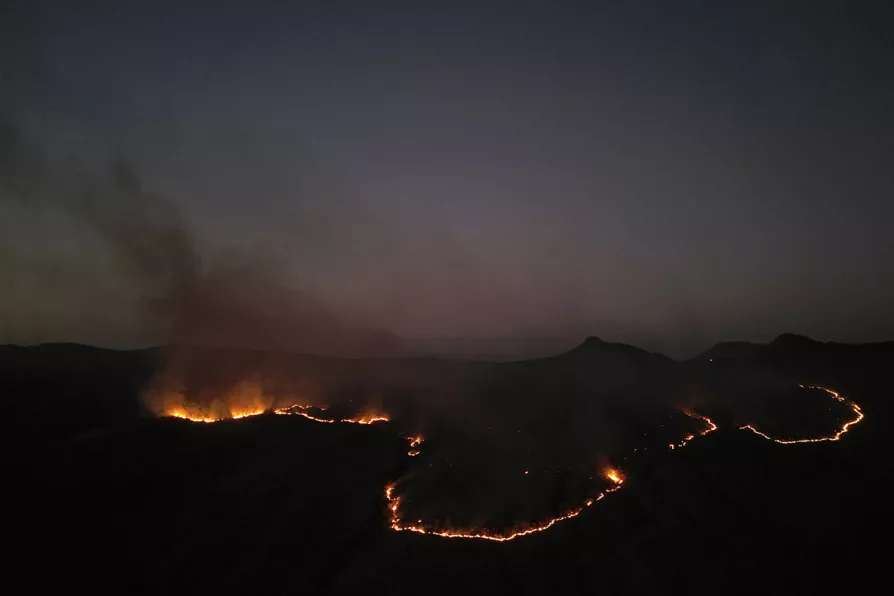Brazil suffering its worst drought in over seven decades

 Fires spread through the environmental protection area of Pouso Alto, in Chapada dos Veadeiros National Park, during dry season, in Colinas do Sul, Goias state, Brazil, September 9, 2024
Fires spread through the environmental protection area of Pouso Alto, in Chapada dos Veadeiros National Park, during dry season, in Colinas do Sul, Goias state, Brazil, September 9, 2024
BRAZIL is suffering its worst drought in over seven decades, with more than half of the country hit, it was reported today.
Around 59 per cent of the country is suffering from the historic drought.
Major Amazon basin rivers are registering historic low flows, and uncontrolled man-made wildfires have ravaged protected areas and spread smoke over a vast expanse, leading to deteriorating air quality.
Similar stories














